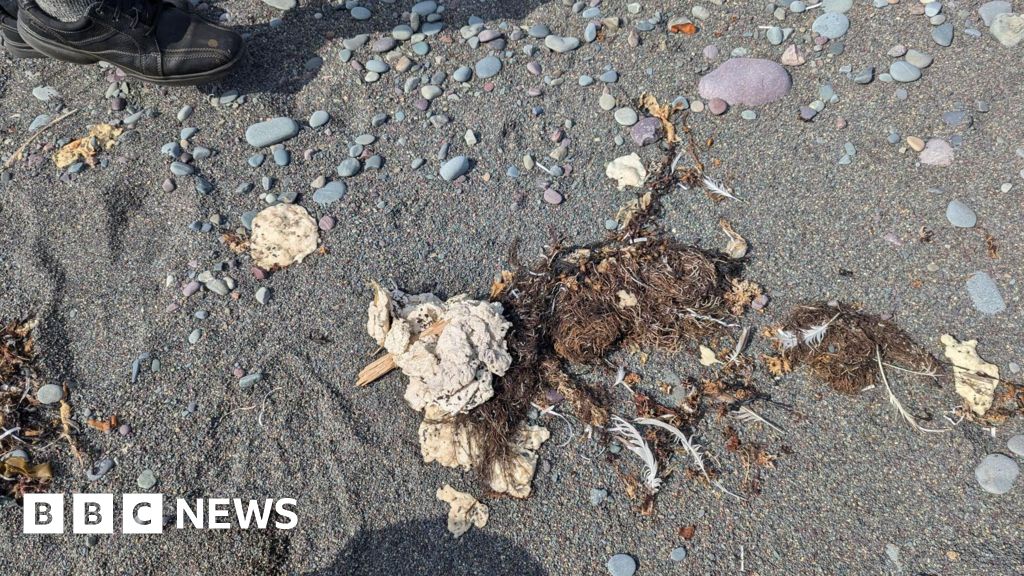
White blobs have been washing up on the beaches of Newfoundland recently, sparking an investigation by Canadian officials.
They have been described by resident Stan Tobin as doughy – “like someone had tried to bake bread and done a lousy job” – with an odour reminiscent of vegetable oil.
Beachcombers on the southern tip of the Canadian province began reporting the strange substance around early September.
The BBC has reached out to Ottawa officials for comment, but has not received a response.
Photos of the substance began cropping up on a beachcombers group online, prompting speculation that it was fungus or mold, palm oil, paraffin wax or even ambergris – a rare and valuable substance produced by whales and used in the perfume industry.
One poster suggested it looked like dough used to make ‘Toutons’ – a regional dish of dough often fried in pork fat.
A spokesperson for Environment and Climate Change Canada told the Globe and Mail that the substance was not a petroleum hydrocarbon, petroleum lubricant, biofuel or biodiesel.
While a marine ecologist for Fisheries and Oceans Canada told the newspaper it was not a sea sponge and contained no biological material.
The blobs were spotted along the shores of Placentia Bay, on Newfoundland’s southeast coast.
Mr Tobin, a local environmentalist, lives in Ship Cove, a tiny village on the bay, and regularly walks the beaches.
He discovered the mystery blobs one day last month, initially thinking it looked like Styrofoam.
He’s since come across “hundreds and hundreds of globs – big globs, little globs” with most about 6in (15cm) in diameter, he said.
But when he called the Canadian Coast Guard to report the findings, Mr Tobin was told that was ruled out as the base of the substance.
“Somebody or somebodies know where this came from and how it got there,” Mr Tobin said. “And knows damn well it’s not supposed to be here.”
